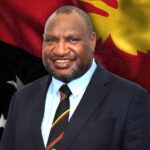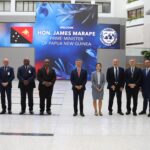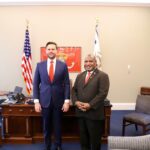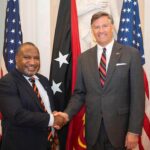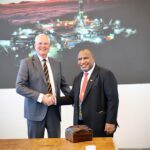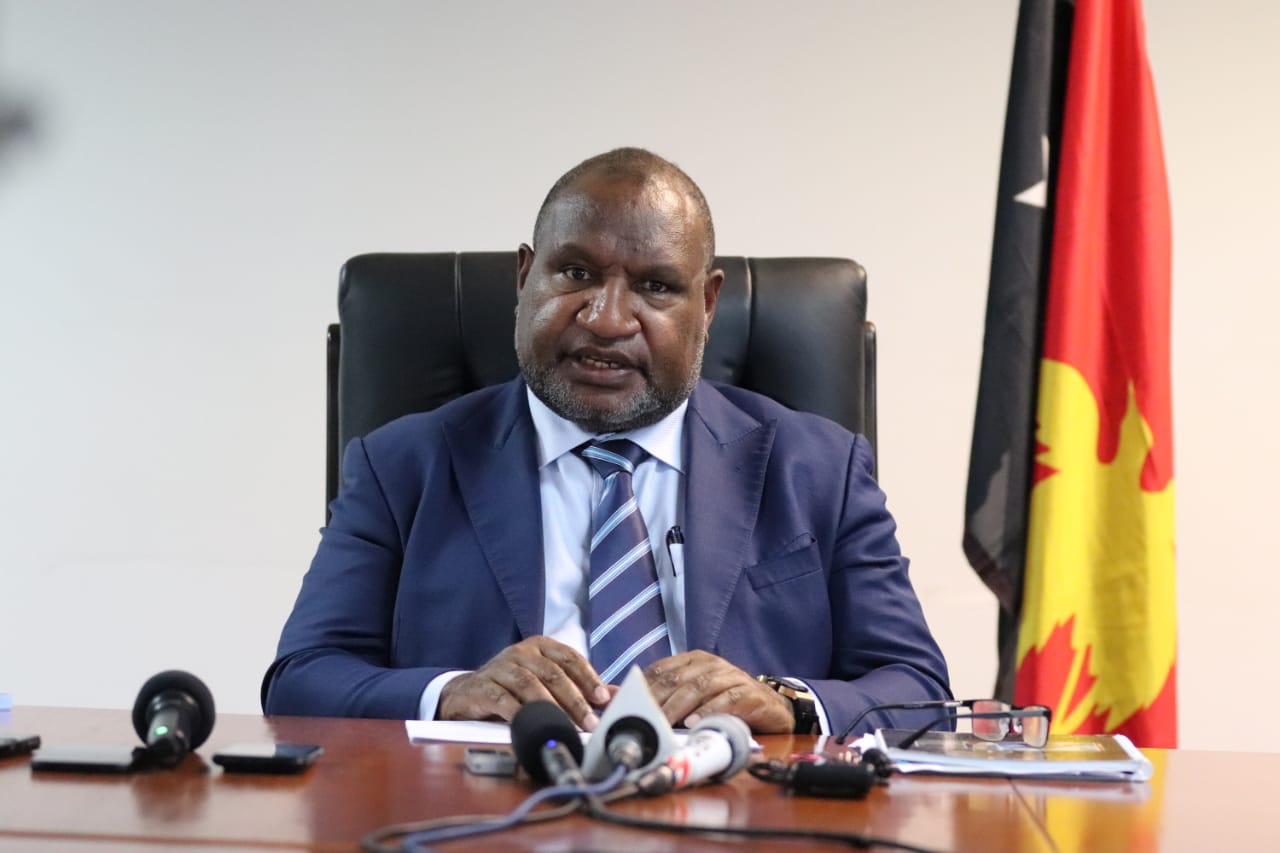Prime Minister Hon. James Marape has praised the Royal Papua New Guinea Constabulary (RPNGC) for their diligent efforts in policing operations across the country. He acknowledged the significant results achieved, particularly in the continuous confiscation of illegal drugs and other substances, both locally and transnationally, despite the limited resources and challenges faced by the force.
The Prime Minister’s comments came after news of a major PNG police operation that resulted in the seizure of K200 million worth of cocaine, marking the country’s largest drug bust to date.
“This demonstrates that despite criticism and limited capacity in terms of personnel and equipment, our police are working very hard to get the job done. There is enormous potential to enhance effectiveness and protect our nation from threats and illegal transnational activities occurring near our borders,” said Prime Minister Marape.
“The National Government is committed to supporting and building up our police force. Training has resumed at Bomana, which is a positive step forward. From the current 5,000 police personnel, we aim to double that number to a 10,000-strong force soon.”
The Prime Minister further noted that his government is prioritising improvements in several areas, including community policing, rapid response, investigative capacity, anti-terrorism operations, prosecution capabilities, and the overall functionality of the police force.
“When we assumed Government in 2019, we inherited an aging police force. For a population of over 10 million, we had only about 4,500 officers, which is inadequate by today’s standards. We are now modernising and equipping our police force and working closely with bilateral partners such as Australia and Indonesia to bolster our capacity and effectiveness,” he said.
Prime Minister Marape emphasised the need to address issues such as guns, drugs, and transnational crimes, which pose a serious threat to national security. He stressed the importance of strengthening the capacity to combat money laundering, drug trafficking, and other significant transnational crimes.
In a stern warning to those involved in drug-related activities, the Prime Minister said, “If you are caught, the law will deal with you accordingly, and the Courts will convict as required. This applies equally to foreigners living in PNG who are involved in such illegal activities.”
While welcoming foreigners who come to invest, live, work, or study in PNG, the Prime Minister stated that those found engaging in transnational crimes would face full legal consequences within PNG borders, including potential imprisonment.
“I want to commend the Police Commissioner for the excellent job he is doing, managing the force well despite the many challenges. Our police, with limited capacity, continue to perform,” said Prime Minister Marape.
“As we approach our nation’s 50th anniversary celebrations in 2025, we are determined to have a police force that reflects the future of our country.”
Prime Minister Marape also addressed the rising concern of drug-related crimes in Papua New Guinea, calling for tougher laws and harsher penalties.
“Drug peddlers will now be dealt with more seriously, and the Government is considering life imprisonment for those convicted of serious drug-related crimes.”
He added, “We will increase police efforts in dealing with drug-related cases and expand our prison capacities to accommodate drug convicts. We are also working to ensure that serious drug offenses, including those involving transnational crime and foreigners, may result in life imprisonment as the maximum sentence. Our laws will be toughened to combat these offenses.”
Prime Minister Marape issued a warning, particularly to young people, to stay away from drugs. “If you’re caught, the law will be toughened, and you will be dealt with. This applies to both locals and foreigners. We want a peaceful society for all.”
He concluded by urging all citizens and residents to be law-abiding: “One of the greatest contributions you can make to this country is to respect the law and help maintain peace.”


